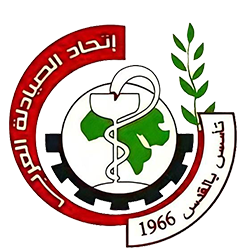You Will Learn
- The difference between disaster and crisis
- Recognition of the methods of reducing the crisis's negative consequences
- Confronting crises and how to manage them
- Coordination of the means of communication and the media
- Implementation of emergency and evacuation plans and alternative plans to face any crisis
Description
Medical crises are the tremendous challenges that doctors and all medical workers face when facing a crisis. Crises represent a challenge for reasons such as presentation with unspecified signs, the interaction of complex factors, gradual development, new situations, insufficient assistance, and time constraints. In a crisis, clinicians often experience performance degradation caused by anxiety and overload and so effective crisis management requires formal training and It usually depends on a systematic and effective response in terms of medical leadership in hospitals, health organizations, those responsible for managing hospitals, managing medical departments and departments for medical, technical and administrative services, and workers in health fields in public and private hospitals of the three administrative levels, senior management, middle management, and executive management. This diploma aims to develop The skills of the participants in crisis and emergency management, the evacuation plan of the hospital and health facilities, and the participant’s introduction to the importance of crisis management in health organizations, the method of applying the correct evacuation and making various scenarios and plans according to the nature of the crisis.
Accreditations
Upon completion of the “Introduction To Crisis Management" course and successfully passing the exam, you will get a certificate approved by the Arab Pharmacists Federation

Introduction To Crisis Management
Some lectures will remain locked until you watch the previous ones.07:04
06:02
06:16
05:08
07:10
07:50
05:55
04:42
05:11
04:47
03:47
05:56
04:09
02:58
03:22
02:21
03:15
03:13
03:46
02:43
04:56
03:27
02:40
02:46
03:28
03:17
03:20
03:45
03:46
02:44
03:45
03:54
03:58
03:38
03:39
03:37
05:16
04:29
04:10
05:27
02:55
02:29
04:20
03:42
04:40
03:46
04:40
03:59
03:35
04:54
04:26
03:01
03:37
03:54
02:37
03:55
02:43
03:30
03:05
05:15
03:04
03:54
04:20
03:15
03:55
05:31
06:30
06:30
06:25
03:44
03:43
04:30
05:07
Recommended courses

Dr. Mohamed Rashad
Planning In Disaster Medicine
Last updated :
Planning In Disaster MedicineThis course highlights how to overcome disasters from a medical point of view in addition to the disaster cycle, how to control the disaster from your hospital & how to prepare your health facility to overcome disasters adding to planning...

Dr. Ahmed Abdel Sabour
Disaster Medicine, An Introduction
Last updated :
Disaster Medicine, An IntroductionThis course is designed to introduce the basic concepts of medical disaster and its management. How do disasters happen? How big is a global burden? What are the main principles to deal with? All of these questions will be answered...

Dr. Shukri Shawki
Strategic Management of Health Care Organizations
Last updated :
Strategic Management of Health Care OrganizationsThis course will take you in journey starting from knowing some facts and definitions of healthcare business, characteristics, uniqueness and strategic management principles, till reaching our destination by formulating the first phase of a strategic plan.



